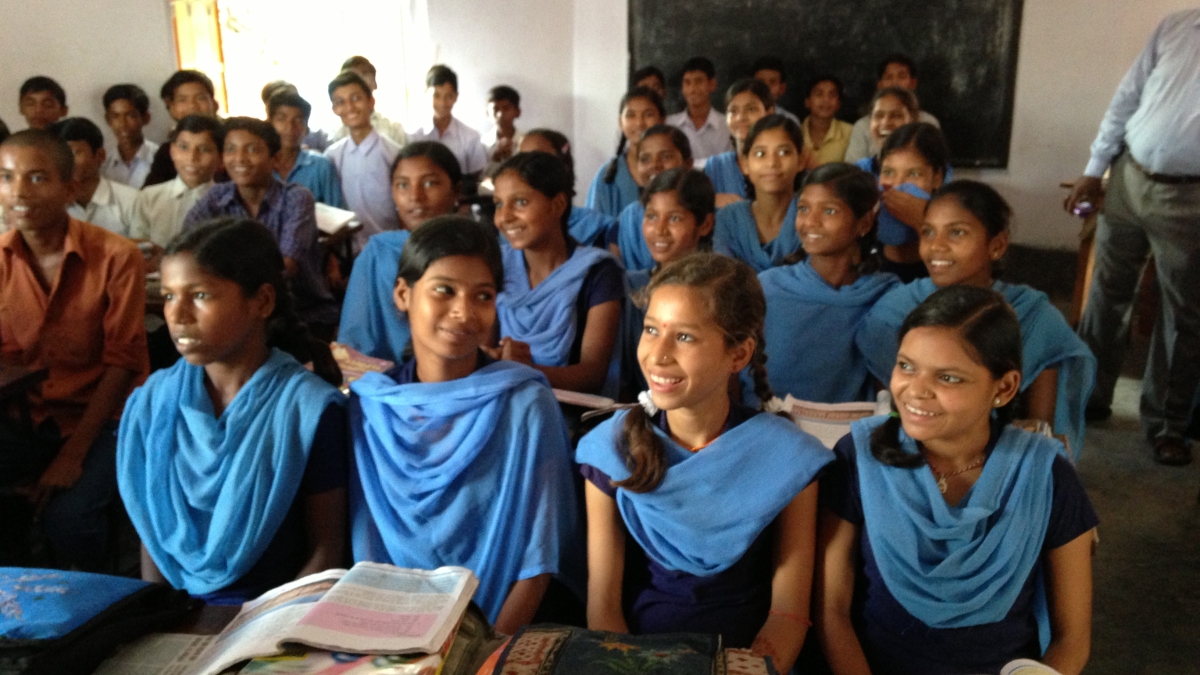ASU-India partnership transforming teacher educators

Mary Lou Fulton Teachers College faculty are sharing a path of teacher development they hope will lead to a better education for India’s burgeoning population of school-aged children.
Called the India Support for Teacher Education Program (In-STEP), the yearlong project funded by a $4.3 million grant from the U.S. Agency for International Development is bringing 110 Indian teacher educators to Arizona State University for an intense, semester-long immersion in a world-class teacher education program. Teachers College also is collaborating closely with India’s Ministry for Human Resources Development to implement the program.
The coveted project was awarded to Teachers College over other U.S. education institutions due to its large-scale program of teacher preparation, close partnerships with more than 180 diverse, preK-12 schools and proven ability to manage complex international programs, according to Ara Barsam, senior director of grants and associate research professor.
“Engaging globally is a key ASU aspiration,” he said. “The In-STEP project provides a tremendous opportunity for us to expand our impact beyond metropolitan Phoenix and the United States to where our Teachers College model is being recognized worldwide.”
Barsam wants the program to equip and inspire the 53 Indian teacher educators who converged on ASU this fall, and the 57 coming next September, to new levels of professional performance. In preparation, he traveled to India in July to assess the needs and strengths of the Indian participants through focus groups and interviews before they arrived in the U.S.
“What we found was the need for our program also to address the humane themes of gender equity and inclusion,” Barsam explained. “There is still a struggle in India to break through remnants of its caste system and to accommodate its incredible religious and cultural diversity.”
In addition to creating a blueprint for teacher preparation that is inclusive and equitable, Barsam wants the takeaway teaching model to respond to different learning styles among students and to expand clinical preparation of India’s teachers so they are better prepared to manage a classroom.
While at ASU, the Indian teacher educators will complete a customized core course in the learning sciences, plus four required and three elective courses. They also will experience Teachers College’s nationally recognized iTeachAZ student teaching residency by spending up to 70 hours in local K-12 classrooms.
As part of their curriculum, learning to write long-essay reform proposals will inspire the Indian educators to think like change-makers, Barsam said. In addition, they will learn the benefits of opening their classroom doors and collaborating with one another in order to become more effective teachers.
Perhaps most beneficial for the visiting teachers will be their exposure to ASU’s world-class educational research and clinical faculty, including Nobel Prize winner Leland “Lee” H. Hartwell. Barsam calls the time that the Indians will spend with these distinguished faculty members “learning with the luminaries.”
For Khriesenuo “Christina” Solo, the most enjoyable part of the In-STEP project is building bridges between two communities of teachers who appear different on the surface, but have surprisingly many things in common.
“I’m learning that I can be a change agent with a story to tell,” she said. “The sincerity, work ethic, generosity of spirit and nature of the American people are values that will be imprinted on my mind forever.
“I believe that if our teacher educators can practice even 50 percent of what we have been learning from the excellent faculty and staff here, the program will affect not only our cohort of 53 people, but be multiplied many times more.”
India’s MHRD plans to document the entire project at ASU in order to create a template the country can adapt and adopt to build capacity in its teacher educators. The ministry intends to identify promising, locally-viable practices that will help it develop a tested model for meeting its national goal of transforming school education.
Barsam said the teacher educators’ experience in Arizona will launch a lifelong quest to enhance their own teaching and that of India’s teaching workforce.
“Ultimately, the participants in In-STEP will become leaders of a renaissance in Indian education,” he said. “We fully expect them to generate a cascade of effects that will culminate, in time, in a stronger education for India’s millions of children.”